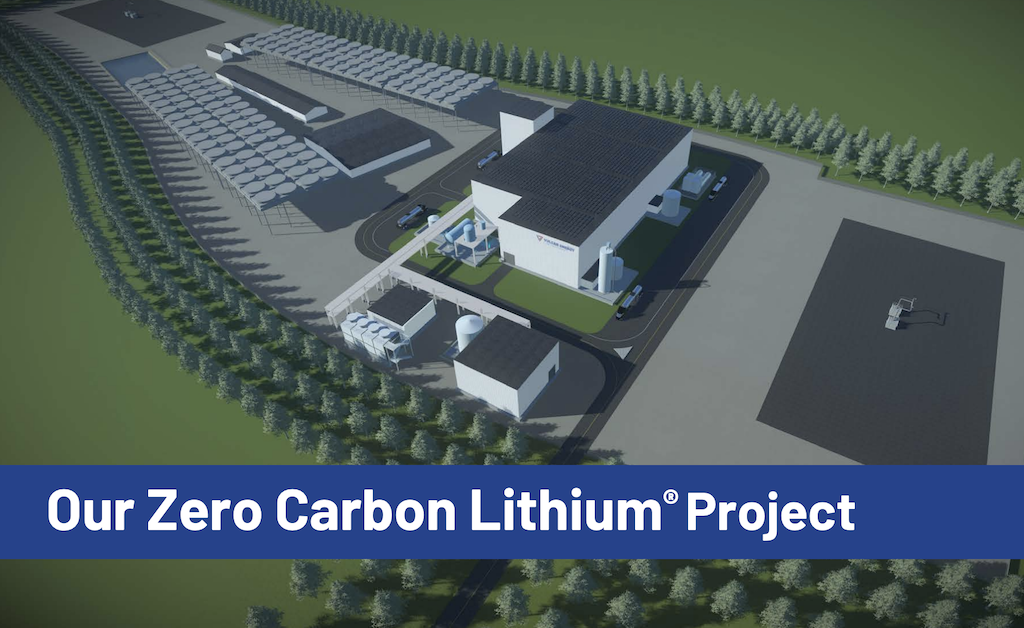Ambitious plans to produce zero-emission lithium with geothermal in Germany

Vulcan Energy Resources plans the development of up to 5 geothermal power plants in Germany that are to produce electricity and zero-emission lithium. Planned start of first plant is set for 2024.
Australia’s Vulcan Energy Resources plans the production of zero-emission lithium in Europe after obtaining positive results in its pre-feasibility studies for a facility powered by geothermal energy.
Vulcan Energy Resources has been investigating the possibility of producing emission-free lithium at a project in the German Upper Rhine Valley. The company plans to pair the lithium production facility with a geothermal power project, powering the facility with zero-emission electricity.
The company said it would be possible to produce a quality lithium hydroxide chemical for batteries at the proposed facility and that it would seek to tap into the emerging European market for lithium-ion batteries and electric vehicles.
“We are very pleased to reach this important milestone for investors in Vulcan and the Lithium Zero Carbon Project. The PFS has demonstrated strong economics for the lithium and energy parts of the project, both independently and in combination, ”said Vulcan CEO Francis Wedin.
“This means that there is no need for a commitment on the ethical and environmental sourcing of battery raw materials, for Europe’s current rapid transition to electric vehicles and renewable energy storage.”
The feasibility study found that the planned EUR 1.74 billion facility could produce up to 40,000 tonnes of lithium hydroxide each year, a usable ingredient for battery production, and would seek to tap into a 1.12 million tonnes carbonate equivalent reservoir from lithium in Germany, the largest in Europe.
The company describes the lithium concentration in geothermal brine among the highest in the world, or actually the highest together with the Salton Sea area in California/ U.S., another hot spot for lithium-geothermal extraction plants.
The production facility would be combined with 5 geothermal power plants with a combined 74 MW geothermal electricity generating capacity, which would extract heat from the lithium deposit itself. The power plant would allow the project to take advantage of a reliable supply of electricity without emissions that will also benefit from attractive subsidies (power fees).
The feasibility study showed that the company could achieve an expected pre-tax internal rate of return of up to 26 percent, a positive result that drove the value of the company’s shares up.
The company said next steps will include completing a “definitive” feasibility study, obtaining the relevant permits, conducting extraction tests and advancing negotiations with potential buyers.
“We have shown that the production of zero carbon lithium hydroxide, with the co-production of renewable geothermal energy, is highly profitable and environmentally friendly,” Wedin added. 2021 should be a transformative year for Vulcan, as we begin our DFS, expand our lithium mining pilot test and advance discussions with European buyers for our carbon-free lithium product. ”
Lithium producers have benefited from the growing market for battery storage and electric vehicles. Europe is currently the fastest growing market for electric vehicles, and the market will accelerate further with the plans of Tesla’s ‘gigafactory’ in Berlin, as well as the push from major German automakers into the market for electric vehicles, including Daimler and Volkswagen .
Vulcan’s European lithium production ambitions are likely to be well received by battery makers in the region, with around 80 percent of the world market currently controlled by Chinese producers. Local production would help address supply chain and environmental concerns.
In a recent corporate presentation, Vulcan points to a two-phased approach in its combined geothermal energy and lithium business. In the first phase the company plans to start two geothermal power plants with 8 MW and 14 MW capacity (planned start of operation in 2024), and the set up of two direct lithium extraction (DLE) plants, and one central lithium plant. In a second phase with start given as 2025, the company plans with three geothermal power plants of 17 MW in capacity each, three DLE plants and an additional central lithum plants.
The plans reflect a total of 5 geothermal plants with a combined power generation capacity of 74 MW to be built in Germany.
Source: Company release and El Periodico de la Energia